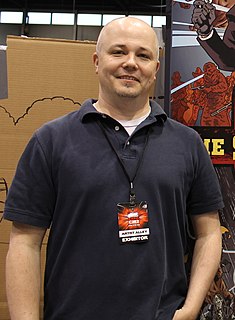A Quote by Bill Pullman
'The Virginian' has a very important romantic story line that you don't find in a lot of Westerns... At the heart of the story is quite a bit of pain and a sense of loss.
Related Quotes
The Universe story is the quintessence of reality. We perceive the story. We put it in our language, the birds put it in theirs, and the trees put it in theirs. We can read the story of the Universe in the trees. Everything tells the story of the Universe. The winds tell the story, literally, not just imaginatively. The story has its imprint everywhere, and that is why it is so important to know the story. If you do not know the story, in a sense you do not know yourself; you do not know anything.
But I think writing should be a bit of a struggle. We're not writing things that are going to change the world in big ways. We're writing things that might make people think about people a little bit, but we're not that important. I think a lot of writers think we are incredibly important. I don't feel like that about my fiction. I feel like it's quite a selfish thing at heart. I want to tell a story. I want someone to listen to me. And I love that, but I don't think I deserve the moon on a stick because I do that.
I've always been into 'fast-paced, don't bore 'em, keep it moving along, stick with the story.' You know: tell a story the way I want to hear a story. I find it more rewarding to write for kids, but I also find it a little easier, because you can just let loose a little bit more in terms of fantasy and stuff.
The Prodigal Son story is, I think, the greatest short-story ever written. It has such drama in it, such great characters, it's so clear and concise, and it's entertaining in the sense that everyone can relate to it. But you have no doubt what our Lord was trying to communicate in the heart of that story. So the truth was not sacrificed on the altar of entertainment in that case. And it can be.




































